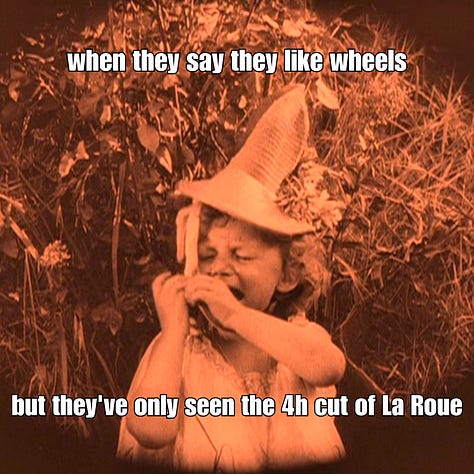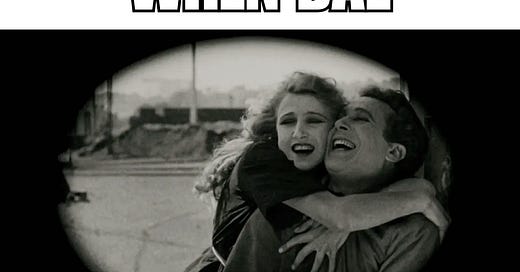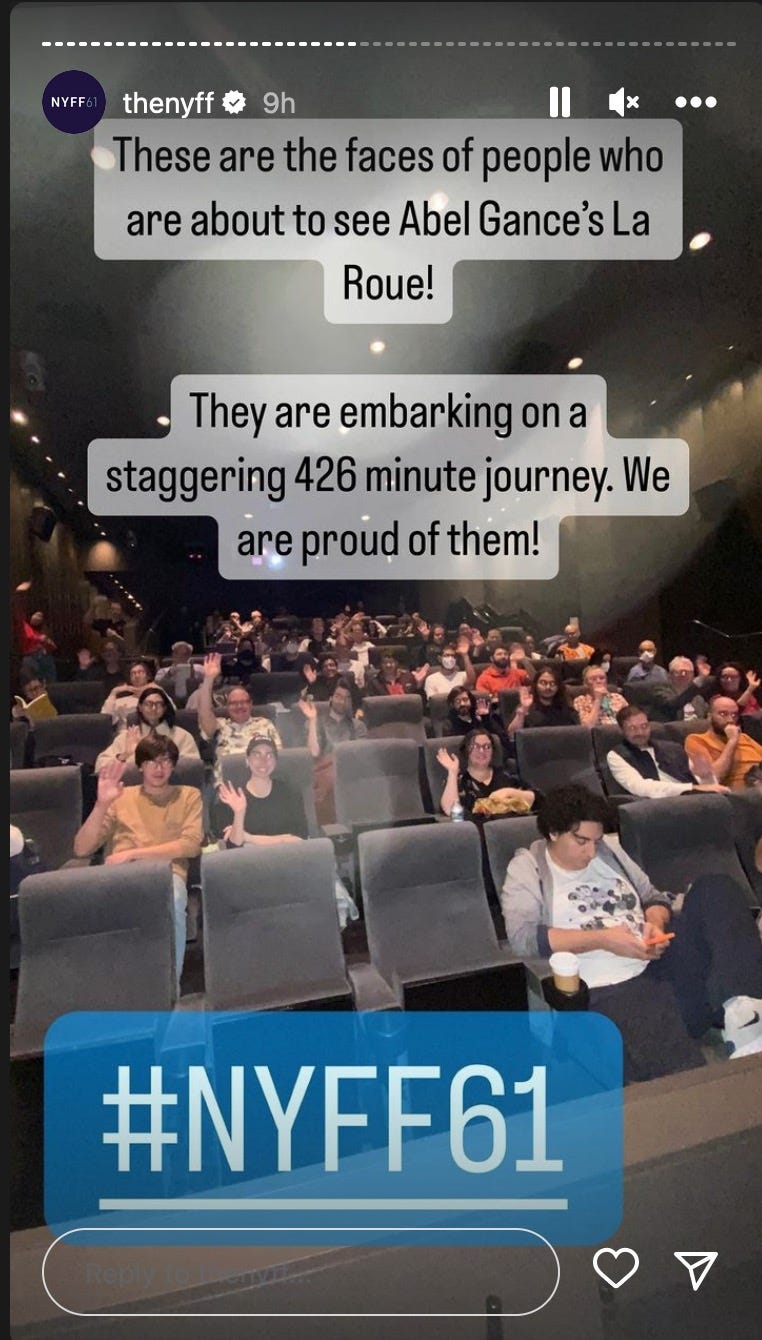The New York Film Festival started last Friday and Lincoln Square is a hive of excitement. So much so that simply walking around 66th and Broadway makes you feel like part of the festivities without you ever needing to step inside a theater. But of course, you will, because 2023's edition of NYFF features films from our most exciting contemporary filmmakers, and who could resist such gorgeous gems? From Lanthimos to Mann to Wiseman, there's something for every taste. Nestled alongside these shiny diamonds are the newly excavated films in the Revivals program, repolished heirlooms seeing the light of the modern day for perhaps the first time. I feel incredibly lucky to have had my eyes dazzled by Abel Gance's La Roue, a film originally released one hundred years ago in 1923. The film has been restored in its entirety, all four episodes and a prologue, for a total runtime of nearly 7 hours. It is easy to talk about La Roue (meaning The Wheel in English) and its significance without ever seeing it. Most surface level observations about a work this epic come from just that, its epic-ness and survival into the present day, rather than the actual content and achievements inherent to the work itself. The greatest loss La Roue has suffered since its release is not physical; it's the film's abstraction and distillation from a piece of cinema to a piece of history, or worse, trivia. In keeping with the theme of Revivals, I want to consider La Roue beyond the confines of its temporal origin in tandem with the brilliant stones of contemporary cinema. This week, I just want to share with you some memes I made about La Roue. I think they're quite funny! Later, you'll be treated to a capital-S Serious essay on machines and the body with linkages to Julia Ducourneau's Titane from 2021, a film I cannot keep my hands off of.
For context and future reference, La Roue centers on a train engineer, Sisif, who rescues baby Norma from a crash and raises her as his own, because that's a cool and normal thing to do with unattended children. Fifteen years later, he and his son, Elie, have both fallen in love with Norma. You know, like you do with a child you raised. However, Norma and Elie believe they're related because Sisif never confessed Norma's origin to them. Tortured by moral guilt (as they should be), Elie and Sisif insist Norma agree to an arranged marriage and essentially banish her from their home. An accident severely damages Sisif's eyesight and forces him to renounce his job working on high speed trains. He relocates to the Alps, aka horny jail, where he runs a trolley and Elie continues his violin-making business (the Boys!). By chance, Norma rides the trolley and reunites with her family who has been ignoring her many letters. Later, Elie and her husband kill one another in a jealous duel. Devastated and alone, Norma hides in now-blind Sisif's cabin. She finally reveals herself to him like “surprise! I am the one who's been cleaning up all the flour you keep in loose bowls everywhere!” and he accepts her back into his life. The film ends with Norma dancing with locals on the mountainside; Sisif dies by the window, unseeingly looking out at her. And on that note, I present your comic relief for the week in the form of images and text probably only amusing to me. Please enjoy.









until next time, annalise




